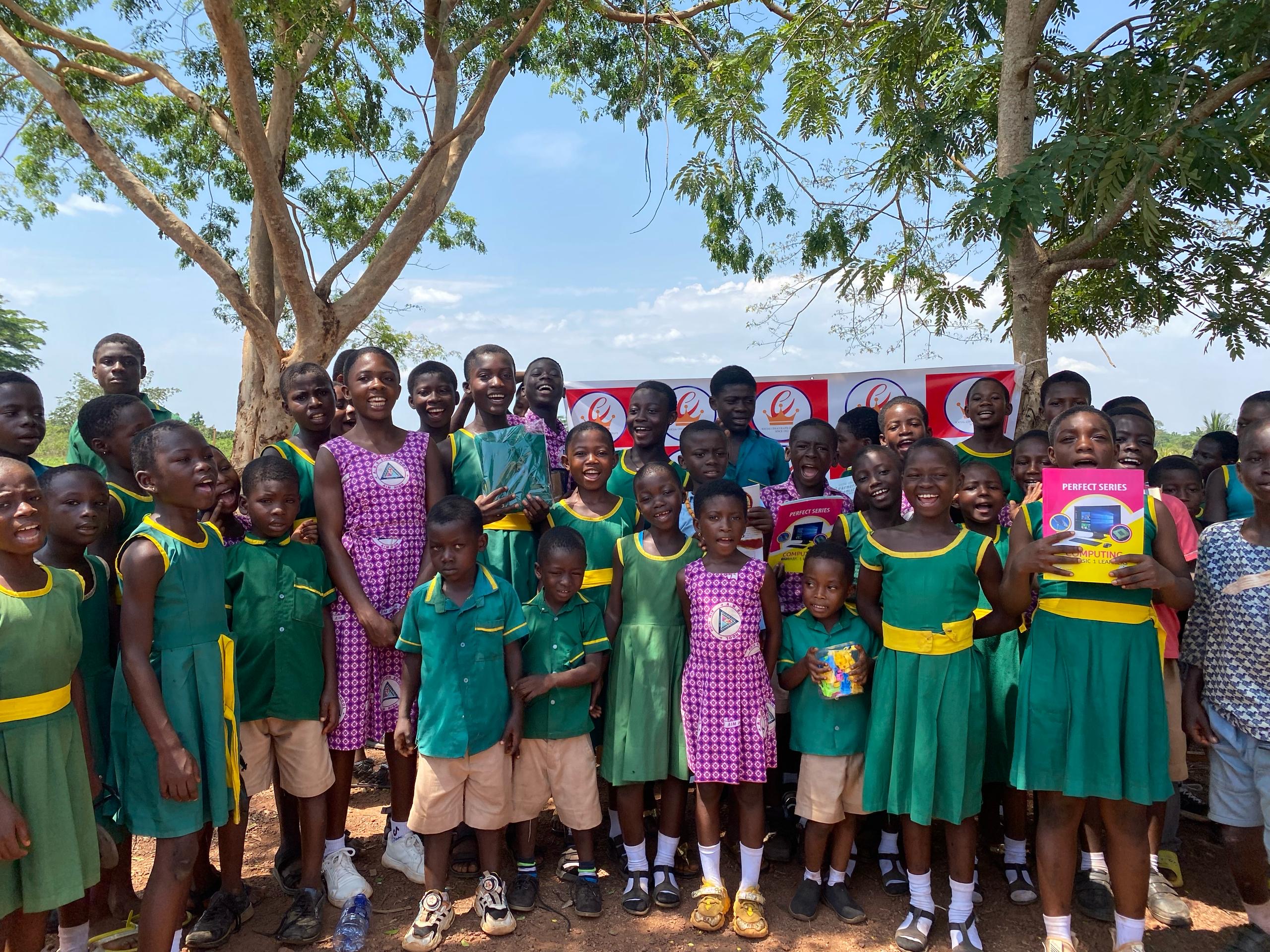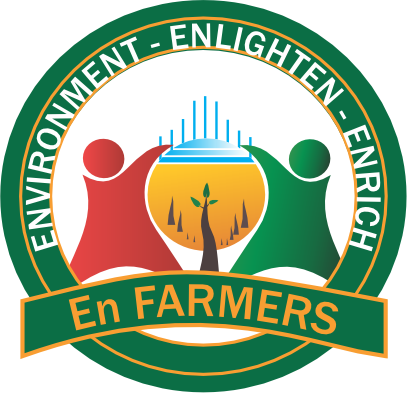Our Programs
Improvement of living conditions is a core program that we run to achieve our self reliant goal for smallholder cocoa farmers.This initiative by En Farmers aims to enhance the capacity of farmers agricultural productivity skills, Knowledge and finance. Through the adoption of new farming techniques such as biochar application, incorporation of economic trees in their cocoa farming, planting of cover crops and use of weed control methodologies is very essential to reduce the high cost of farm maintenance. Again, the high water holding capacity of biochar and its ability to boost nutrient uptake helps to minimize excessive investment in chemical fertilizers. Offering training on Good Agronomic Practices (GAPs) reiterates its relevance to increase yield and builds the knowledge scope of farmers unarguably
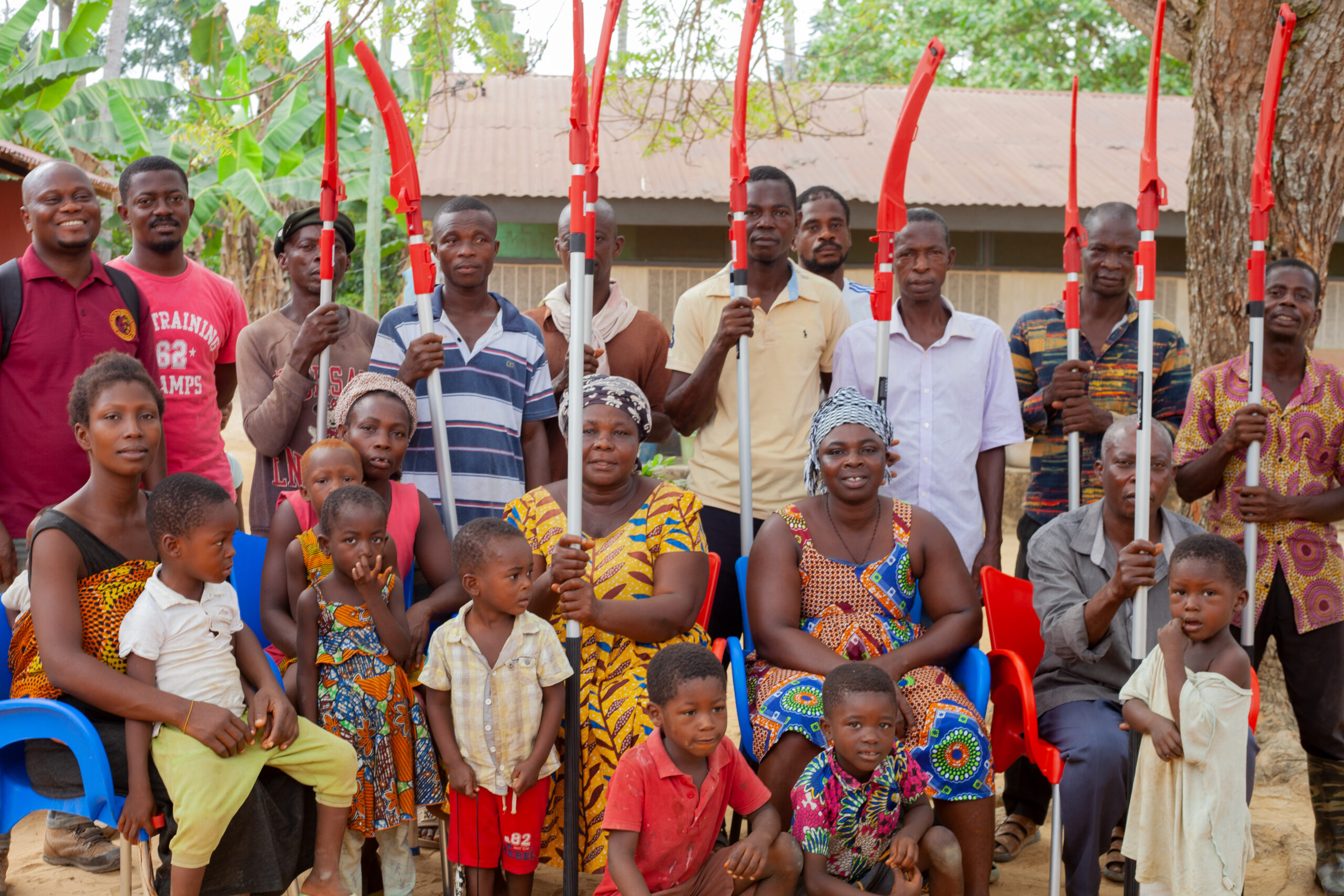
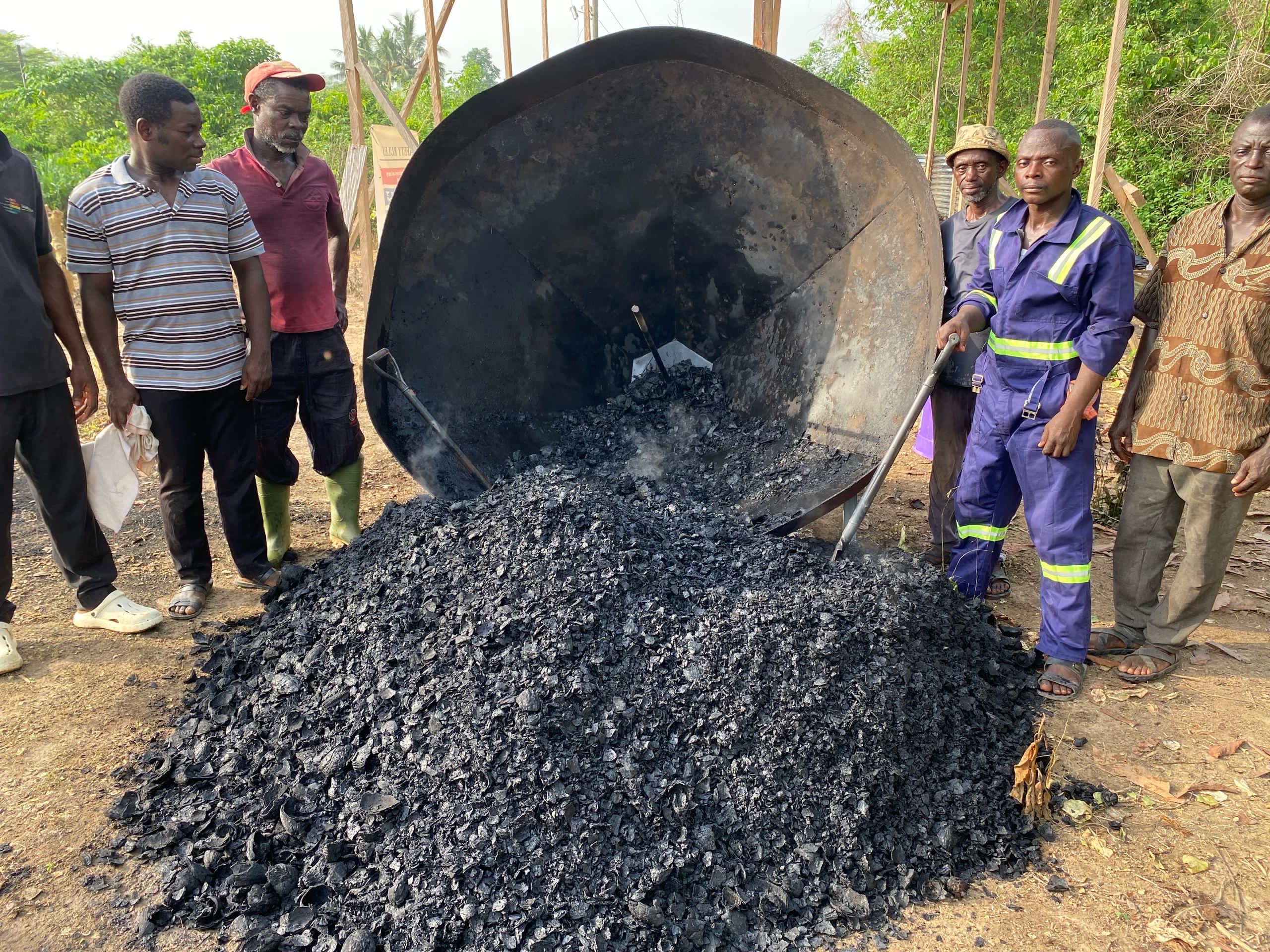
Regenerative agriculture (Biochar, Agroforestry) At En Farmers, we believe that the power of regenerative agriculture lies in its ability to bring a balance back to our agricultural system. It is a farming system that goes beyond sustainability. The practice of regenerative agriculture seeks to improve soil health, enhance biodiversity and restore ecosystems. In recent years, there have been growing concerns about the degradation of soils all over the country. Cocoa farm soils are no exception to these concerns.
Our Approach
We have trained and equipped cocoa farmers to produce biochar by themselves. The farmers gather cocoa pod husk which is considered as waste in their farms and use it to produce biochar. After production, the biochar is returned to the soil from farms where the cocoa pod husk was removed. The removal of cocoa pod husks from the farm reduces the emission of greenhouse gases into the atmosphere and minimizes the use of synthetic fertilizers and chemicals. Biochar contributes to sequestering carbon in the soil that helps to mitigate climate change.
Agroforestry is centuries long practice in agriculture that provides the required atmosphere for plants to thrive. We have been working directly with smallholder cocoa farmers to plant economic trees.
Cooperative management (VSLA,FPC, SP, IGA)
The introduction of this cooperative management activities in the various communities is a progressive approach to ensure smallholder farmers attain self fulfillment needs.
The lack of a formal financial service has created a huge burden on parents in rural areas. The seasonality of their occupation makes it difficult for these farmers to have money all year round. En Farmers have restored hope of farmers to have financial freedom and ease the burden on Cocoa Purchasing Clerks to provide loan facilities to them. Village savings and loans association (VSLA) is transparent, democratic and with simple accounting procedures that everyone can understand and trust. All members of this association are committed to helping one another.
The Forest Protection Committee (FPC) on the other hand helps to ensure that farmers contribute to protecting the environment. Trees are natural climate stabilizers, absorbing carbon dioxide, restoring ecosystems and preventing soil erosion. The core mandate of this committee is to guard against the removal of economic and native trees that enhance shades in cocoa farms, boost longevity of cocoa trees and create favorable conditions for microorganisms to thrive.
Several hectares of cocoa farms are abandoned and unproductive due to aging, high cost of labour and poor soil health. En Farmers is training young farmers within the communities and empowering them to increase their income while helping other smallholder farmers to increase their yield. The youth are trained and equipped with modern tools to provide farm management services such; pruning, spraying and weeding. It is the joy of every farmer to be self-reliant. In order to achieve this, farmers are entreated to invest in income generating activities.
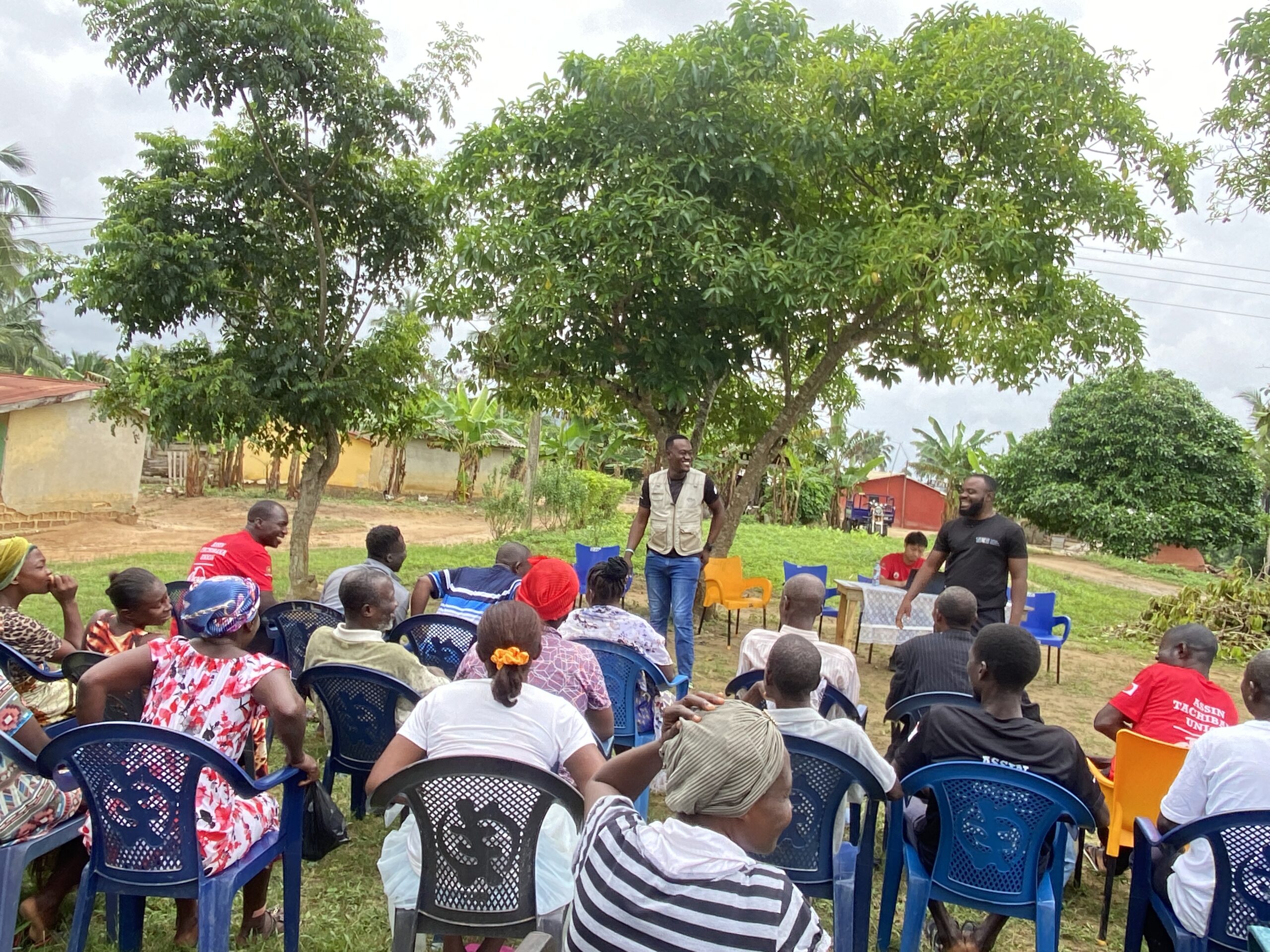
Productivity enhancement program (GAPs training)
We work with groups of farmers whose capabilities are highly immeasurable, unmatched and invaluable. Productivity in smallholder farming communities are mostly geared towards the desire to feed family rather than to amass wealth. Hence most farmers do not focus on undertaking Good Agronomic Practices (GAPs) that would increase their income for self sufficiency. As food security is important to each farmer, we held workshops to highlight the benefits to benefit the whole nation
Child education support
Access to education and the basic requirements to facilitate a conducive environment to excel academically is the fundamental right of every child. However, studies and engagement with children in the urban and rural areas project an incremental divide. The majority of funds from the government is allocated to schools in urban areas rather than rural areas. Hence in the rural areas, achievements in academic performance are negatively impacted. Social challenges such as poverty have predominantly contributed to low Infrastructural development. Some children turn to follow their parents to the farm during school hours. Digitally, most of these rural communities are not connected to a stable internet where they can benefit from online educational contents and social issues. En Farmers are not just committed to ensuring that children in rural areas have access to these facilities but to create child labor-free zones, increase enrollment, promote gender equity in education and create alternative paths of empowerment.
